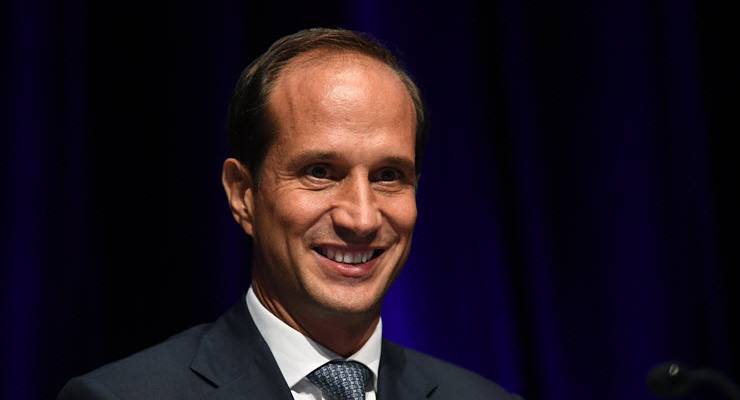
AMP has finally faced a reckoning over sexual harassment allegations.
The chairman is gone and the alleged harasser has been demoted. But the process of unpicking the company’s rotten corporate culture has only just begun.
Right from the start, the problem was much bigger than Boe Pahari, the alleged sexual harasser at the centre of the scandal. The board’s willingness to protect Pahari at all costs and downplay Julia Szlakowski’s complaints show just how conflicted an organisation can be when faced with the choice between doing the right thing and protecting its bottom line.
AMP’s board and management were conflicted even before the allegations emerged. The company couldn’t afford another scandal, or face losing one of its biggest earners, as it tried to recover from damning revelations that it charged dead people life insurance — one of the lowlights of the Hayne banking royal commission.
The company has churned through chairmen in an effort to revive the business and its fortunes. The last thing it needed was a Me Too scandal to bring that work undone.
When sexual harassment allegations against one of its most lucrative executives emerged, the board and management took steps that have now been described as a cover-up. They not only chose to stand by him, but promoted him.
These efforts to try to conceal his behaviour have enraged observers.
“Just the arrogance of a company that was supposed to be in a penitent mood following the royal commission,” UTS Business School management professor Thomas Clarke said.
Disingenuous approach
Chairman David Murray and board member John Fraser have now tendered their resignations. But Pahari remains, albeit in a demoted position, and so does CEO Francesco De Ferrari.
De Ferrari has consistently stood by Pahari’s promotion and downplayed the severity of Szlakowski’s complaint, which the company insists was a lower level code of conduct breach.
But the company was forced into this position after it emerged it had promoted Pahari to run its AMP Capital business, even after penalising him $500,000 — a quarter of his bonus — for allegedly sexually harassing Szlakowski.
Throughout an external investigation into Szlakowski’s complaints, AMP continued to dig in behind its executive.
The investigation itself was “isolating and decontextualising”, Szlakowski’s lawyers claim, deliberately separating out different aspects of the alleged conduct, resulting in the overall harassment being played down. A full report was never provided to Szlakowski.
“You’ve got a culture set up where key people just want it to go away” UTS discrimination law expert Dr Karen O’Connell said.
“But that clashes with everything we know about sexual harassment, and just how ubiquitous it is.”
Attempts to control the message and minimise Pahari’s alleged behaviour continued even after Szlakowski went public to criticise AMP’s version of events. Bowing to growing pressure from shareholders, the company now says it is “willing” to release the report. But it has told Szlakowski she can only view it under strict supervision, with restricted legal representation.
Szlakowski’s lawyer Josh Bornstein has called the move “unprecedented”.
“AMP’s disingenuous approach to this matter has misled the public, staff and shareholders about the serious nature of the sexual harassment complaint against Mr Pahari,” he told The Australian Financial Review, which first broke the scandal.
Perennial problem
Shareholders finally took action this week, demanding a board take responsibility. The zero-tolerance approach has been welcomed, even if it’s too little, too late.
But the bigger question is whether the company is capable of genuine change. Just last week, its chief risk officer was threatening employees with termination if they were found leaking to the media.
La Trobe University senior research fellow Ann Wardrop said a board shake-up made for good headlines but did little to address the cognitive dissonance that allowed companies to have detailed sexual harassment policies but still cover up bad behaviour when it suited them.
“It’s the perennial problem in corporate governance,” she said. “You can set up all the policies you like but it’s how you actually act that matters.”








It’s a good article in general. What I disagree with is the use of “culture” and “governance” as terms to describe these top brass. Hayne disputed all that – he said it was the firm and the top executive’s and board’s pursuit of profit, not the culture and feeble terms like that.Harassment needs to be treated as a dishonourable act, if not worse, and an act of male domination, and treated as such. The cover ups only prove lots of these men behave like that. Lots of other men do not.
Sure some board members resigned, but the perpetrator got his old job back, I assume in which he performed the alleged acts? Baby steps I guess.
Powerful people bind to defend their privilege & power.
Who could have guessed?